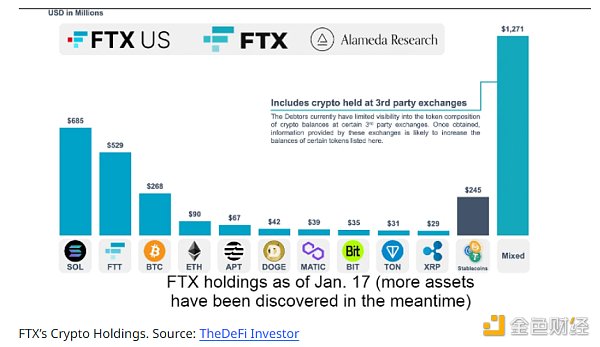Nasdaq, one of the world's largest stock markets, article: "New Challenges, New Solutions – The Rise of Smart Cities"
Recently, one of the world's largest stock markets, the financial media of Nasdaq, a well-known electronic securities trading institution in the United States, invited Mr. Xiao Ziwen, chief strategic officer of Platto Cloud, to publish a signed article on the theme of “Smart City and Blockchain”. Xiao Ziwen said that smart cities have truly existed in our lives, but the improvement of infrastructure still has room for development. Blockchain technology has far-reaching significance and potential for better protection of data security and prevention of potential attacks.

The world is changing and the cities we live in are constantly changing. As the number of metropolitan cities around the world continues to increase, the explosive global urbanization trend becomes more apparent. From 1950 to 2018, the global urban population rose from 751 million to 4.2 billion. Faced with the ever-increasing number, the problems faced by global governments have long since changed from urbanization to environmental sustainability.
These problems have prompted urban planners to explore new models and technologies to solve problems, and a new generation of smart cities has emerged. Smart cities reinforce the performance, livability and cost-effectiveness of urban centers.
- July 6 market analysis: the market may reverse? High energy warning ahead!
- Dry Goods | Nick Szabo: The Origin of Money (Part-5): Heritage and Marriage
- Babbitt column | 5 big questions of FB, Libra's 3-layer system and FB one stone three birds

The city of tomorrow, the current technology
With IoT devices and applications, Smart City provides automated and efficient public services, and its networked devices will cover everything from traffic lights to energy networks, and can be used to train, record and monitor electric vehicles in automated driving systems. Battery usage to ecological management and other aspects.
At present, our family has applied a series of Internetworking technologies, of which 36% cover Internet of Things applications, such as Amazon's Alexa, an intelligent thermostat or smart TV.
The popularity of smart devices in our lives has only just begun. Garter estimates that in 2020, a typical smart city will have about 9.7 billion IoT devices that will make efficient use of data tracking to provide seamless automation for urban residents from health care to waste disposal.
Distributed ledger technologies, such as blockchains, are also used to process and optimize the data generated and received by our smart devices to facilitate data transactions between the two.
Imagine if an IoT-based trash can in the park sends a notice to the park's management when the garbage is full, there will be a cleaner to empty the trash. The trash can then automatically send a notice to the park management department that the user has been emptied, and the waste management company will immediately receive the corresponding service fee.
Distributed ledger technology allows transaction logs to be shared among multiple participants, including the park's management, waste management, and national public waste disposal committees. The blockchain serves as a database of a range of public services to facilitate efficient urban deployment of services.

Smart City: Efficient, efficient and energy efficient
Smart cities are more efficient, from promoting reliable public transportation systems to creating sustainable energy markets. We can quickly see that the unmanned bus will receive the traffic sensor's instructions when the traffic is congested, and then automatically switch routes to avoid wasting passengers in the congestion before reaching the next charging station, and also based on real-time energy. A bill for high-speed transportation management.
Many cities have promoted smart city projects and adopted distributed ledger technology to solve the problem of inefficient implementation. For example, India launched the “Smart City Mission” project in 2015, with plans to build 100 smart cities across India. The government has shown that the landing of many Indian cities needs to rely on blockchain technology.
In 2012, Estonia applied distributed ledger technology to handle identity management and taxation issues, providing many government departments with 24/7 online services. The government led innovation to bring good national efficiency and livability, and promoted the outbreak of innovative start-ups, contributing nearly 10% of national GDP.
In addition to benefiting the local economy, smart cities can also create energy “exchanges” that allow urban families to trade electricity with each other, which not only reduces energy storage needs, but also helps by directing energy to families that really need it. The popularity of renewable energy. For example, solar panels, families with excess energy can become energy producers in other households.
China's largest auto giant Wanxiang Holdings Co., Ltd. invested US$29 billion to develop smart cities, with blockchain technology as its technical support. From Wanxiang's development in energy efficient applications and electric vehicles, this project will strive to ensure that the core of the future city is sustainable.

Safeguarding Smart Cities: Data Protection in the Connected World
With increasing correlation and crisis, security has become the top concern for 47% of IoT developers. Concerns about security are not unreasonable. In 2018, the study found that there are 17 vulnerabilities in the existing smart city system. Hackers can cause devastating blows to people living in smart cities from the form of flood warnings and changing traffic lights.
Smart cities have truly existed in our lives, but the improvement of infrastructure still has room for development. There is no doubt that our life will be more interconnected in the future, and the infrastructure needs more improvements to ensure the privacy and security of each resident.
Blockchain technology has far-reaching significance and potential for better protection of data security and prevention of potential attacks. The application of digital currency and distributed architecture can strengthen those systems that are inherently secure, so that there is no internal data leakage. Without the supervision of the masses, reduce the point of invasion of potential hackers.
The application of privacy protection computing and secure multi-party computing allows multi-party applications participating in computing to calculate data without worrying about data leakage, and does not rely on third parties to handle the large amount of value stored in the system. Thanks to data-driven technology, the world we live in becomes more efficient, and personal privacy should be more strongly protected.
A smart city is bound to become the city center of the future, supporting millions of people, services and businesses. In addition, smart cities also herald the growing importance of data privacy and cybersecurity. In an increasingly interconnected world, smart cities offer more efficient, environmentally sustainable and cost-effective hubs than ever before.
However, the right infrastructure must evolve to protect the security and privacy of individuals, which allows increasingly sophisticated technologies to improve the quality of our lives without leaving us behind the economy.
We will continue to update Blocking; if you have any questions or suggestions, please contact us!
Was this article helpful?
93 out of 132 found this helpful
Related articles
- Babbitt column | Another example of STO application under Reg A+, what is the difference this time?
- Will Facebook and Libra fight with each other?
- Market Analysis: Will Wall Street approve ETH futures, will it lead the coin to set sail?
- Viewpoints | Some "malicious" speculations on how Facebook promotes Libra
- The Internet is developing like this, blockchain?
- Where is the paradise of cryptocurrencies? Count the 7 countries that are tax-free for cryptocurrencies!
- The Canadian version of the Mentougou incident re-exploded: the founder’s “death” was transferred to the personal account of the rival exchange.






